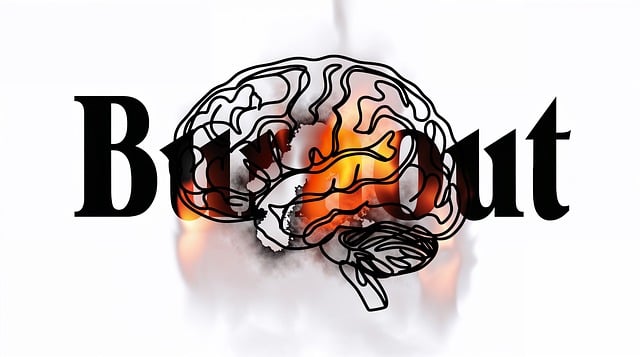Wheat Ridge Therapy for Therapists-Clinicians offers comprehensive crisis intervention strategies, focusing on immediate support and long-term healing. Their approach includes active listening, empathy, and tailored communication to create safe spaces for clients. The program equips professionals with skills for risk assessment, de-escalation, and stigma reduction, ensuring effective crisis management. Post-crisis care programs promote resilience and guide clients towards sustained mental wellness, making Wheat Ridge Therapy a vital resource in mental healthcare.
“In times of crisis, effective intervention can be a lifeline. This comprehensive guide explores essential strategies for therapists and clinicians navigating turbulent situations. From understanding the nuances of crisis intervention to mastering de-escalation techniques, this article equips professionals with valuable tools. We delve into practical assessment methods and post-crisis care, emphasizing long-term recovery. Discover how Wheat Ridge Therapy provides a framework for therapists-clinicians to manage high-pressure scenarios, ensuring client stability and fostering healing.”
- Understanding Crisis Intervention: A Comprehensive Overview
- The Role of Therapists and Clinicians in Crisis Situations
- Effective Communication Strategies for De-escalation
- Practical Tools for Assessing and Stabilizing Clients
- Post-Crisis Care and Support for Long-term Recovery
Understanding Crisis Intervention: A Comprehensive Overview

Crisis intervention strategies are a vital part of mental healthcare practice, enabling therapists and clinicians to support individuals facing severe emotional distress or mental illness. According to Wheat Ridge Therapy, understanding crisis intervention involves equipping professionals with effective tools to navigate challenging situations. It’s not just about responding to acute crises but also preventing escalation and promoting long-term healing. The goal is to provide immediate support while also addressing underlying issues and fostering resilience.
The process often involves a range of techniques, from active listening and empathy to behavioral de-escalation methods. Mental illness stigma reduction efforts play a significant role in creating a safe space for individuals to open up without fear of judgment. Additionally, communication strategies tailored to diverse populations, considering cultural sensitivity in mental healthcare practice, ensure that crisis intervention is inclusive and respectful. These approaches not only enhance the effectiveness of support but also build trust between the therapist, clinician, and client.
The Role of Therapists and Clinicians in Crisis Situations

In crisis intervention situations, therapists and clinicians play a pivotal role in providing immediate support and guidance to individuals facing severe emotional distress or mental health challenges. Wheat Ridge Therapy for Therapists-Clinicians focuses on equipping professionals with the skills to assess and manage critical scenarios effectively. These experts are trained to create a safe and non-judgmental environment, fostering open communication that enables clients to share their experiences and fears. By employing evidence-based practices, therapists facilitate emotional well-being promotion techniques tailored to each individual’s unique needs.
Beyond direct intervention, Wheat Ridge Therapy emphasizes the importance of self-care practices for clinicians themselves. Well-cared-for therapists can better support their clients, as they are more equipped to handle the demands of crisis situations. Additionally, the program delves into mental illness stigma reduction efforts, fostering a deeper understanding among professionals about the impact of societal perceptions on client outcomes. Through these comprehensive approaches, therapists and clinicians become instrumental in not only resolving immediate crises but also in long-term mental health recovery journeys.
Effective Communication Strategies for De-escalation

In crisis intervention situations, effective communication is key to de-escalating tensions and fostering a safe environment. Therapists and clinicians from Wheat Ridge Therapy can play a pivotal role in this process by employing active listening skills. This involves fully concentrating on the individual’s words and non-verbal cues, demonstrating empathy, and paraphrasing their feelings back to them to ensure understanding. By creating an atmosphere of trust and validation, professionals can help individuals express their emotions openly, which is crucial for effective de-escalation strategies.
Additionally, mental health education programs designed with resilience building in mind can empower both therapists and clients. Enhancing communication through role-playing scenarios and practicing mindfulness techniques can contribute to better crisis management. Promoting Mental Health Awareness also enables individuals to recognize signs of distress early on, leading to quicker interventions. These strategies collectively support a comprehensive approach to crisis intervention, ensuring that both professionals and those in need are equipped with the tools for effective de-escalation.
Practical Tools for Assessing and Stabilizing Clients

In the realm of crisis intervention, therapists and clinicians often find themselves at the forefront, requiring practical tools to swiftly assess and stabilize clients in distress. Wheat Ridge Therapy offers valuable resources for mental health professionals aiming to enhance their crisis management skills. These tools include a range from basic risk assessment techniques to more specialized strategies tailored for various client populations. By integrating these practices into their workflow, therapists can efficiently gauge the severity of the crisis and implement appropriate interventions.
For instance, Risk Management Planning is a crucial aspect often addressed in Wheat Ridge Therapy’s guidance. Mental health professionals are encouraged to develop comprehensive plans that not only identify potential risks but also equip them with strategies to mitigate those risks effectively. Additionally, Social Skills Training can play a pivotal role in crisis stabilization, empowering clients to communicate their needs and manage emotional situations more adeptly. Such an approach aligns with the broader goals of Mental Health Policy Analysis and Advocacy, ensuring that both practitioners and clients are equipped to navigate crises within a supportive and understanding framework.
Post-Crisis Care and Support for Long-term Recovery

After an initial crisis intervention, the journey towards long-term recovery begins with post-crisis care and support. This critical phase focuses on fostering resilience and maintaining stability to prevent relapses. Wheat Ridge Therapy offers specialized programs tailored for therapists and clinicians, ensuring they have the tools to guide their clients effectively through this process. These programs emphasize the importance of continuous support, which is essential for individuals to navigate the challenges that may arise during recovery.
The Mental Wellness Coaching Programs developed by Wheat Ridge Therapy promote strategies like Depression Prevention and Anxiety Relief. These initiatives aim to empower individuals with coping mechanisms and skills to manage their mental health effectively. By integrating these programs into post-crisis care, therapists can facilitate a holistic approach to recovery, addressing not just the immediate crisis but also setting clients up for sustained mental wellness in the long run.
In conclusion, crisis intervention strategies are a vital toolset for therapists and clinicians aiming to de-escalate acute situations and promote long-term recovery. By understanding the dynamics of crisis, adopting effective communication methods, utilizing practical assessment tools, and providing comprehensive post-crisis care, professionals like those at Wheat Ridge Therapy can make a profound difference in their clients’ lives. This multi-faceted approach ensures that individuals facing crises receive the support needed to navigate challenging times and foster resilience for the future.











